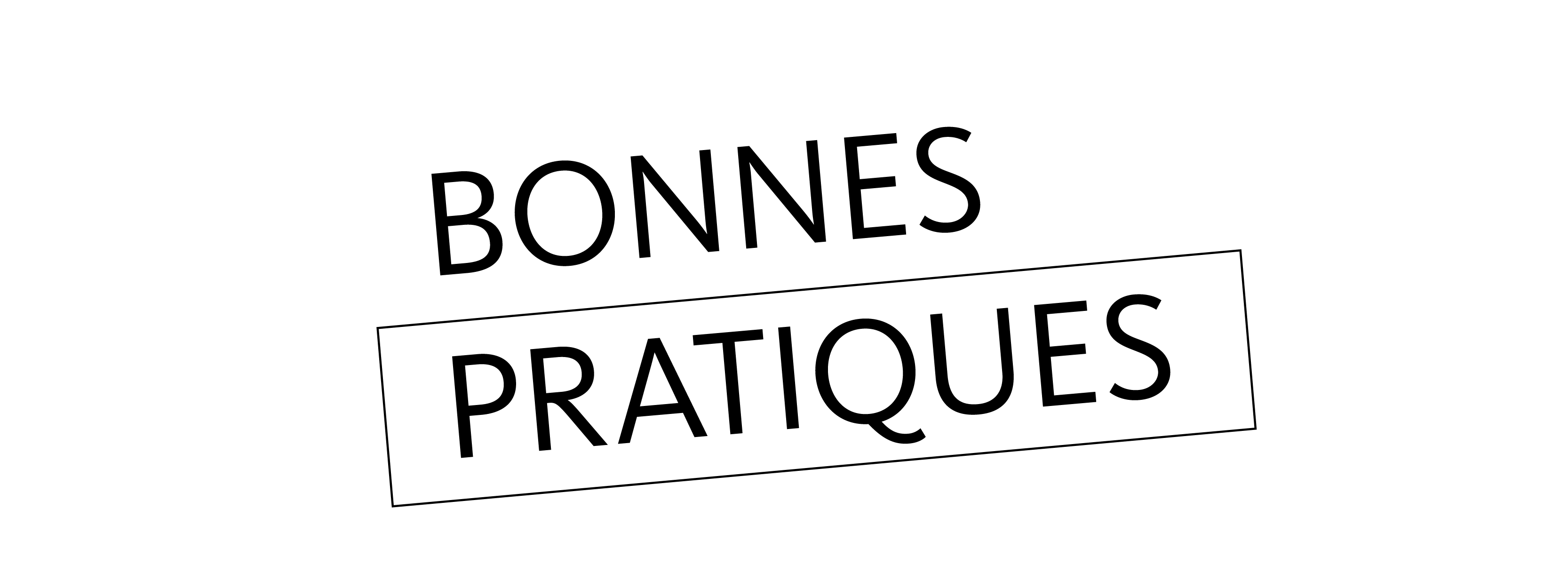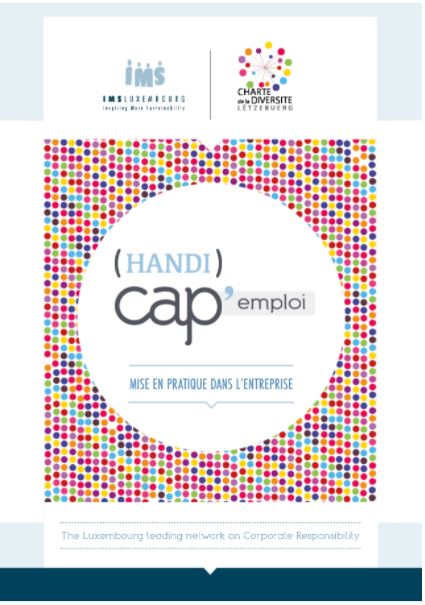According to the “Diversity & Business” Barometer, published by IMS Luxembourg in November 2016 in the context of the Diversity Charter Lëtzebuerg, the proportion of employees with a disability is almost nil within the companies that have signed the Diversity Charter. How to address this often ignored topic within companies?
The Center for Equal Treatment was most seized on this discrimination criteria in 2016. Although efforts have been made – 56% of the signatories of the Diversity Charter address disabilities within the framework of their diversity management policy (an evolution compared to 2014) – there is still clearly room for improvement.
What does “disability” mean?
Generally speaking, disability expresses a difficulty or inability to do certain things in a given environment. Legally, a person can benefit from the “disabled worker” status when her work capacity is reduced by at least 30% and was caused by a work accident, a physical, mental, sensory or psychic impairment or is the result of psychosocial difficulties. It thus encompasses a diversity of situations, each having its own specificities.
Nevertheless, the notion of disability is well too often reduced to the stereotype of the person in a wheelchair. The question of stereotypes and unconscious bias is crucial when it comes to disabilities: how can you give a chance to a person with a disability if unconsciously they are still often associated with someone who needs help rather than with an active member of our society? Fact is, that more than 20% of the registered job seekers at the ADEM are people who have the “disabled worker” status.
A change in mentalities is needed. It is essential to change the way disabilities are perceived in order to change the current practices and transition towards a more inclusive job market.
An attractiveness and competitiveness matter
An ageing workforce puts the disability topic as well as health issues at the core of our economy, and requires employers to take these issues into consideration. To recruit a person with a disability can be a source of innovation, and allows companies to open up to new markets and clients while respecting the legal obligation that is fixed by a quota system in Luxembourg.
Beyond this obligation, recruiting a person with a disability can also give a concrete meaning to the social responsibility discourse and the commitment in favor of diversity. It is the possibility to start reflecting on the organisation and its working conditions, the workstation ergonomics or even the optimization of certain production processes. It is the opportunity to have a new outlook on the company, which, in the long run, can be positive for all the teams with regard to efficiency and quality of working life.
Labour market inclusion
When the employer decides to recruit a person with a disability, they might face some questions related to the recruitment procedures and human resources management. They have to express their recruitment needs and evaluate the candidate’s skills, their know-how and soft skills, and whether they have a disability or not. With this in mind a skills-based recruitment rather than a recruitment based on disabilities can be essential.
Generally speaking and in order to fight preconceived ideas, the employer should multiply professional contacts with people who have a disability through the implementation of mentoring programmes and by welcoming interns or visiting a sheltered workshop. These visits can result in the creation of partnerships between the company and these organisations.
Expert non-profit organisations can indeed be precious partners when implementing a diversity management strategy. Strategies that focus on disabilities: whether an assessment of needed workstation adaptations, support with coordinating trainings raising internal awareness or even the integration of a disabled collaborator, often find that companies are back into inclusion of disability.
Apart from the cooperation with nonprofit organisations, cooperation with public authorities and particularly with ADEM is also essential when it comes to contacting potential candidates as well as the available subsidies for the workstation adaptations.
Apractical approach with The (Handi)Cap Emploi project
In order to defuse unconscious biases and to prepare the employer to recruit and welcome a person with a disability, IMS Luxembourg has launched the (Handi)Cap Emploi project. IMS has addressed this double objective between February 2015 and March 2017 by organizing practical trainings that enabled to fight preconceived ideas on disabilities with employers as well as candidates. Employers have worked on elements to facilitate the inclusion of this target group within their organizations (recruitment methods – wording – job interviews, but also on how to integrate the disability topic within their diversity management strategy, etc.) These workshops have preceded the “Job Cafés”, where employers and candidates with a disability have had the opportunity to meet and to realize that some of their preconceptions were not based on reality.
"(Handi)Cap Emploi: Practical guide to disability in the workplace"
|
|
The practical guide (Handi)Cap Emploi has all the essential information to recruit a person with a disability in Luxembourg : legal framework, procedures for the recognition of the status, but also practical advice on the job market inclusion as well as a benchmark of the key stakeholders.
|
Apractical approach with The (Handi)Cap Emploi project
In order to defuse unconscious biases and to prepare the employer to recruit and welcome a person with a disability, IMS Luxembourg has launched the (Handi)Cap Emploi project. IMS has addressed this double objective between February 2015 and March 2017 by organizing practical trainings that enabled to fight preconceived ideas on disabilities with employers as well as candidates. Employers have worked on elements to facilitate the inclusion of this target group within their organizations (recruitment methods – wording – job interviews, but also on how to integrate the disability topic within their diversity management strategy, etc.) These workshops have preceded the “Job Cafés”, where employers and candidates with a disability have had the opportunity to meet and to realize that some of their preconceptions were not based on reality.
"(Handi)Cap Emploi: Practical guide to disability in the workplace"
|
|
The practical guide (Handi)Cap Emploi has all the essential information to recruit a person with a disability in Luxembourg : legal framework, procedures for the recognition of the status, but also practical advice on the job market inclusion as well as a benchmark of the key stakeholders.
|





